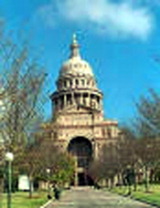Fireworks that Fizzled
July 6, 2005
While telling you they're lowering your taxes and improving your schools, the tax-bill writers are picking your pockets.
Written by Rick Casey, Houston Chronicle

Perhaps the best evidence of the poor quality of Texas' public schools is the fact that its graduates didn't spend Independence Day revolting against their state legislators.
Late Friday, the nonpartisan Legislative Budget Board provided an analysis of the school funding tax bill passed out of a House committee.
This offering by the special session is not much different from the House plan produced during the regular session. Simply put, the lambs are getting fleeced.
While telling you they're lowering your taxes and improving your schools, the tax-bill writers are picking your pockets.
OK, I'm exaggerating.
They're picking the pockets of only four out of five Texas families.
Worst for renters
But it's going for a good cause — improving our schools — right?
Wrong.
The money is mainly going into the pockets of the other one-fifth of Texas families.
Which makes it a pretty good bill, if you happen to be among the Texas families who make more than $100,593 a year.
If your family is right in the middle and earns about $52,000 a year, you're looking at an overall tax increase of about 3 percent.
But if you make more than $140,000, you'll get a cut of 2.4 percent, with the tax break rising if you make even more than that.
It's worse if you're a renter, as are half the folks living in Houston.
The primary dynamic of the tax legislation is to cut school property taxes by raising sales taxes to be the highest in the nation.
Lynching would be barbaric
Few renters, however, will see rent cuts.
Yet all will pay more for clothes and other goods, as well as new sales taxes for car repairs (a burden for low-income people).
But even among homeowners, the new scheme favors the rich.
The more valuable your house, the larger your tax cut.
Yet the rich pay a smaller percentage of their income in sales tax than do families that have to spend all they make.
Some Democrats tried to soften the blow by substituting a smaller cut in the property tax rate, by tripling the homestead exemption from $15,000 to $45,000.
This provision would provide for as large a tax cut for owners of modest houses as for owners of mansions.
But it cut into the goody bag for the segment that benefits the most from this scheme: businesses that own lots of property.
No wonder the staff analysis shows the big winners to be the finance, insurance and real estate companies, who could expect a tax break of a half billion dollars.
But House leaders fought off the proposal that would give just a portion of that half billion dollars to homeowners instead.
What would Texas voters do if they understood that the legislators who control the Texas House of Representatives want to take money from their pockets to give to the state's biggest, wealthiest real estate developers?
Lynching would be barbaric, but they might consider replacing those legislators.
And they might seek laws that would prevent such excesses as Houston real estate developer Bob Perry's contribution of $6.7 million in campaign contributions to state politicians in the past two election cycles.
(It is no accident that real estate developers would be among the biggest winners with this tax scheme.)
Citizens might even insist on a taxing system that shares the burden equally among rich, poor and middle-class.
Am I stirring up class warfare?
It's not warfare when people whose pockets are being picked put up resistance.
But there will be no resistance as long as citizens don't realize they're being had.
![]()
![]()
Related Stories
![]()
Fair Use Notice
This site contains copyrighted material the use of which has not always been specifically authorized by the copyright owner. We are making such material available in our efforts to advance understanding of environmental, political, human rights, economic, democracy, scientific, and social justice issues, etc. We believe this constitutes a "fair use" of any such copyrighted material as provided for in section 107 of the US Copyright Law. In accordance with Title 17 U.S.C. Section 107, the material on this site is distributed without profit to those who have expressed a prior interest in receiving the included information for research and educational purposes. For more information go to: http://www.law.cornell.edu/uscode/17/107.shtml. If you wish to use copyrighted material from this site for purposes of your own that go beyond "fair use", you must obtain permission from the copyright owner.